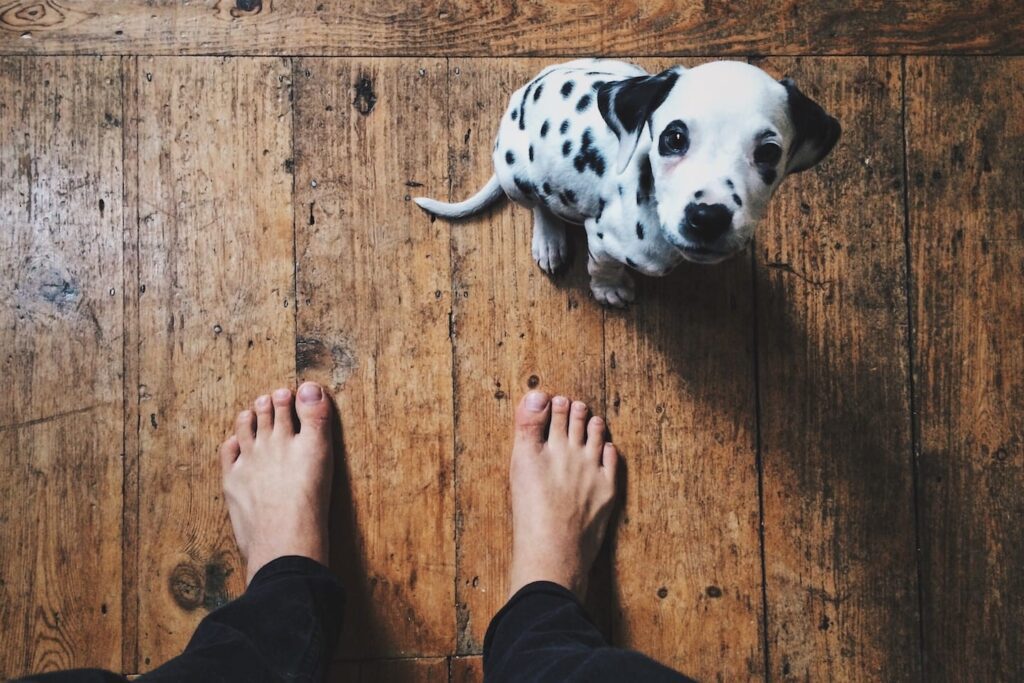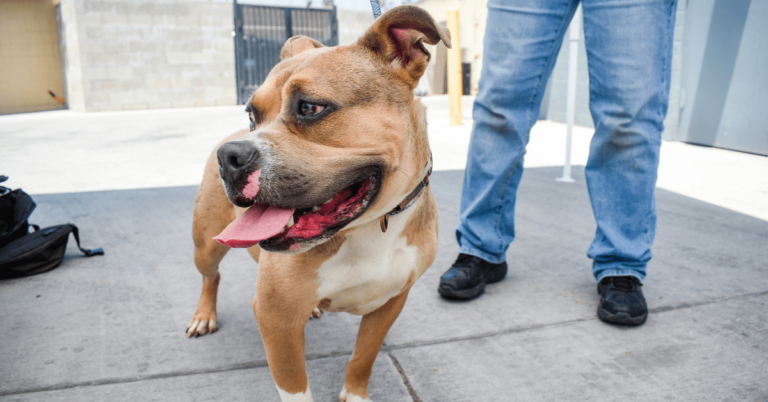Puppy Training: What You Need to Know for Successful Housebreaking

Puppy training takes time, patience, and perseverance. One of the most important things you will teach your puppy is housebreaking. Do it right, and you only have to do it once!
Keep in mind, no matter how diligent you are; accidents will happen – it’s part of the learning process. Arm yourself in advance with some good cleaning products, housebreaking aids, and basic knowledge of how puppies’ bodies work, and you’ll be well on your way to housebreaking success.
The first thing to understand is that a puppy doesn’t have control over muscles of elimination before four months of age, and all puppies vary in developmental time of these muscles. Smaller dogs have smaller bladders and will need to urinate more frequently. Luckily, dogs are naturally hardwired not to eliminate in their “den,” so you can use this to your advantage by taking a cue from this natural instinct, and housebreaking your puppy by crate training.
Crate Training Shopping List:
- A collapsible metal crate that she can grow into, not so big that it doesn’t feel den-like, but big enough for the grown dog to stand up, turn around and stretch.
- Dog toys and chews so the crate is inviting.
- A cozy dog bed or blanket. We like these waterproof blankets because they can be used anywhere, washed, and reused.
How to Prepare the Crate:
1. Put the crate in a central location. You don’t want the crate to seem isolating or like punishment. Ideally, you want your puppy to accept the crate as a safe and cozy place to hang out. Put food and water bowls in there. Your puppy should eat and drink in the crate as well.
2. If possible, move the crate near your bed at night for the first couple of weeks. This may ease separation anxiety and also help you wake up to take her out if she whines or acts restless, indicating she needs to go.
First Steps: Dogs are naturally territorial and will mark their territory with urine. Once a dog has marked off an area, she will always be drawn back to those particular spots to mark again. This is called “scent posting.” In the beginning, a puppy sees your whole home as her territory and will not understand that the whole house is, in fact, a “den.” The first time you bring your puppy home, carry her to the spot you want her to “go” and set her down. On a leash, lead her around your backyard or the area where you’d like her to eliminate. When she “goes,” dole out the praise by saying “good potty” (or whatever word you want to use for the act). Be consistent with the word, so your puppy learns to associate the word with the act, making it easier to discern later if she has to “go” simply by asking her and noting her reaction. Praise her every time she “goes” where you want her to, but never punish when she doesn’t. Swatting her with a newspaper or rubbing her nose in it won’t help her learn, but it will make her afraid of and distrustful of you.
First Time in the Crate: The best time to put the puppy in the crate is after she’s tired from exercise and ready to sleep. Lead your puppy into the crate while giving praise. Give your puppy a kong with peanut butter, or some food to reinforce the idea that the crate is a happy place to be. If your puppy whines and cries and you know she doesn’t have to go out, ignore her. If a puppy doesn’t get any attention (negative or positive) after 20 minutes or so, they usually quiet down. Letting her out of the crate when she cries will only reinforce the idea that whining gets her what she wants. You do not want to reinforce this behavior.
Signs Your Puppy Needs to Go: A puppy’s bladder is small, and her digestive system works quickly. There is a very short window of time between feeling the need to go, to doing it. Remember: until four months of age, puppies don’t have control over elimination. If your puppy barks or whines at you, starts sniffing the ground in little circles, panting, or raising her tail while doing any of these things, it’s time to take her out, and quickly.
How Long Can a Puppy Wait: Before a puppy reaches 12 weeks old, he will need to go every 1 to 2 hours. A loose rule of thumb is that a puppy can “hold it” for the amount of hours that corresponds to his age in months, plus one. So a 3-month-old puppy can hold it for 4 hours. 4 hours is the maximum, and he may feel the need to go out more frequently than that. Smaller breed dogs have smaller bladders and will need to go out more frequently regardless of age.
Gating Off Sections of the House: During the housebreaking period, it’s important that you always have eyes on your puppy. She shouldn’t roam free until she understands that all the rooms in the house are her den. You may want to get a gate or two and close off some rooms in the house. This gives her more freedom than being in the crate but doesn’t set her up to fail by allowing her places to get into trouble unsupervised. A gate is a very handy housebreaking aid and useful in raising a dog in general.
Accidents Will Happen: If you catch your puppy going where she shouldn’t – congratulations! You are the lucky recipient of a “teachable moment.” Say “no” in a stern voice (don’t yell), and gently scoop her up and take her outside. If she finishes outside, “good potty!” You’re ecstatic to have such a smart puppy. If she already did all her business inside, well, nobody’s perfect. Remember she’s a still a baby. Accidents are part of the process.
Cleaning Up Shopping List: Pet odor eliminating cleaner for carpets and fabrics. These products work by breaking down the waste with enzymes and neutralizing the smell so dogs won’t re-mark the spot. Lots and lots of paper towels. Cleaning Up: Clean up messes immediately. Once urine has soaked through to the carpet pad, it’s very difficult to clean. Soak up urine with paper towels and then saturate the area with enzymatic cleaner. Let it sit for an hour, then soak that up with more paper towels. Later, you can sprinkle it with baking soda and vacuum it up for good measure. If you have tile or hardwood, these messes won’t be a big deal, just wipe up, clean, and dry the area thoroughly. For old messes: enzymatic cleaners can work to break down old stains with a few treatments. Locate the old stains using a black light (works on carpet, wood, and walls) and re-treat those areas.
Puppy training in general, and housebreaking specifically, can be challenging, but keep it in perspective. You are teaching your best friend her most valuable set of skills in her most formative years. Do it with patience and love, and the payoff will last her whole lifetime.


